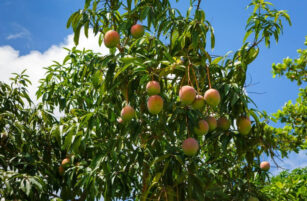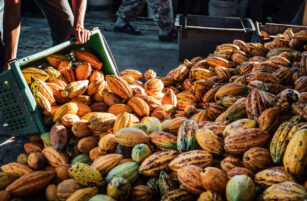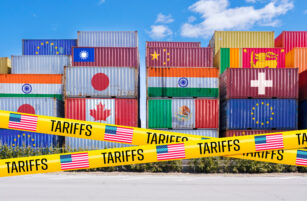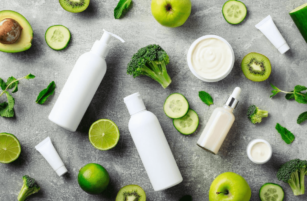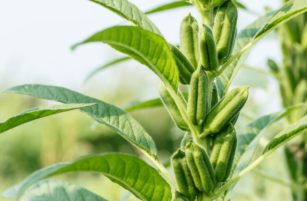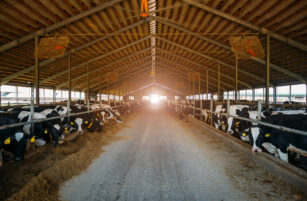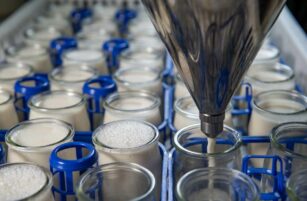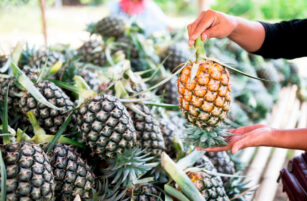Insight Focus
Brazil’s peanut production is set to surge by 60%. This will be led by the expansion of cultivation areas in the Central-West region. Growth is fuelled by strong export prices and crop versatility.
Peanut Production Takes a Leap Brazil is preparing for a surge in peanut production. This year, the National Supply Company (Conab) expects around 1.17 million tonnes to be produced, 60% more than the previous season. This more than doubles production since 2020.
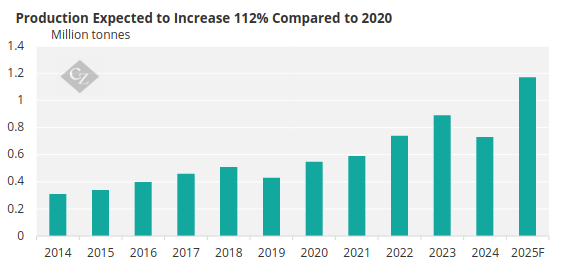
Source: Conab
Much of this growth has been driven by the expansion of cultivation in Mato Grosso do Sul, in the Centre-West. According to Conab, the state will contribute nearly 180,000 tonnes to this year’s harvest—an increase of no less than 154% more compared to 2024.
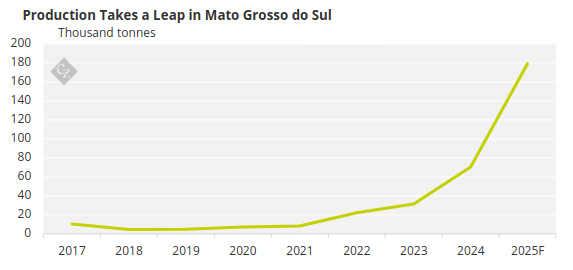
Source: Conab
Pricing Dynamics Help Momentum
Although São Paulo remains the leader in peanut production, Mato Grosso do Sul has been emerging as a new—and promising—region in recent years. While cultivation in São Paulo grew by around 45% between 2019 and 2024, Mato Grosso do Sul went from virtually no peanut production to 70,500 tonnes, according to Conab.
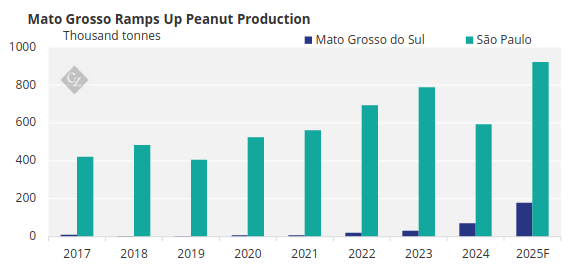
Source: Conab
In recent years, the state has become the second-largest producer of the commodity in the country, behind only São Paulo. On São Paulo’s farms, peanuts are grown in rotation with sugarcane, as this helps preserve soil health. In Mato Grosso do Sul, peanuts are being planted as an alternative to soybeans.
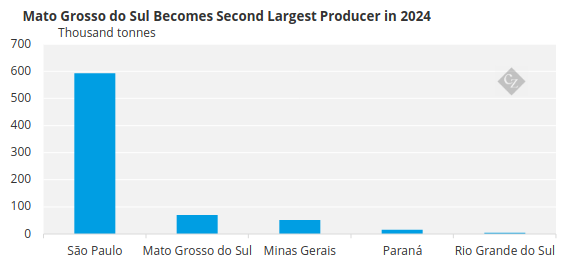
Source: Conab
This trend in Mato Grosso do Sul has been driven by factors such as the appreciation of the export price. According to Comex, the price in USD/kg increased by nearly 20% between 2014 and 2024.
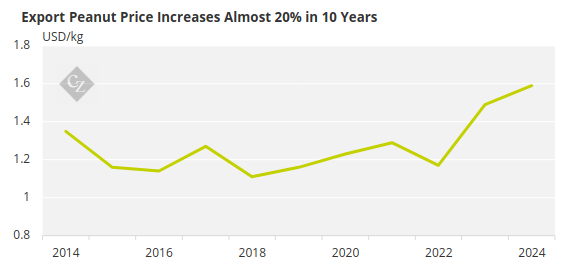
Source: Comex
“At the same time, the price of soybeans, which is the main crop in Mato Grosso do Sul, has been cooling. So, it makes sense to diversify the crop with peanuts,” says Whartley Nunes, an analyst at Itaú BBA’s Agro Consulting.
Another advantage is that peanuts can be grown even in sandier soils, where other crops generally face difficulties, and they are more resilient to adverse weather conditions such as prolonged droughts.
Quality Improvement Has Important Impact
The improvement in the quality of Brazilian peanuts is another key factor driving the expansion of the crop in the country—and the growth of foreign sales.
In recent decades, the Ministry of Agriculture and entities such as the Brazilian Agricultural Research Corporation (Embrapa) have invested in technical assistance programs for farmers, which have helped reduce aflatoxin levels in peanuts.
This is a toxin that can contaminate crops—especially when handled improperly—and harm humans. Brazilian peanuts are now subject to stricter international quality controls, boosting exports to countries with higher standards, such as those in Europe. This has also contributed to higher export premiums. Today, a significant share of shipments is sent to these destinations.
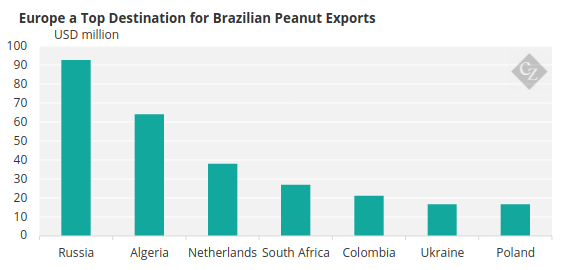
The outlook for this year remains positive. “There will be record shipments due to expectations of a very strong harvest,” says Whartley Nunes, who conducted a study on the crop.
The numbers appear to confirm this. Between January and April of this year, foreign sales totalled around 73 million tonnes of peanuts—10% more than in the same period last year, according to Comex.
The country is on track to reverse last year’s drop in shipments, which was caused by lower production due to issues such as droughts in São Paulo.
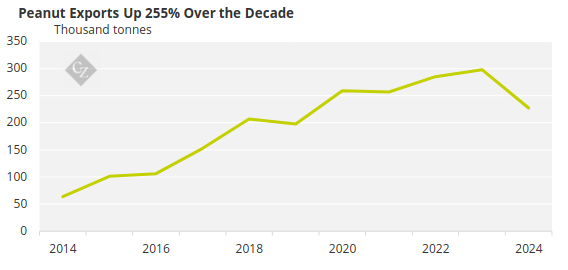
Source: Comex
Today, Brazil is the fifth largest global exporter of the commodity, behind more traditional countries in the cultivation of the oilseed, such as India, Argentina and the US.
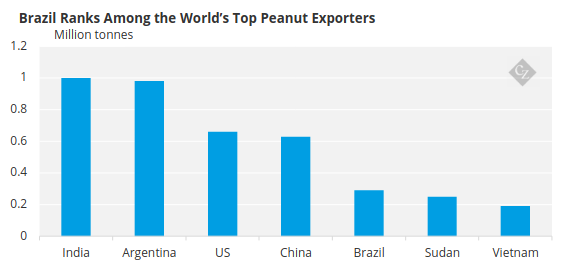
Source: USDA
If the quality of Brazilian peanuts continues to improve – and weather conditions are favourable – both production and exports are likely to keep rising. Investments by major producers in the Central-West region further strengthen the positive outlook for peanuts in the years ahead.


